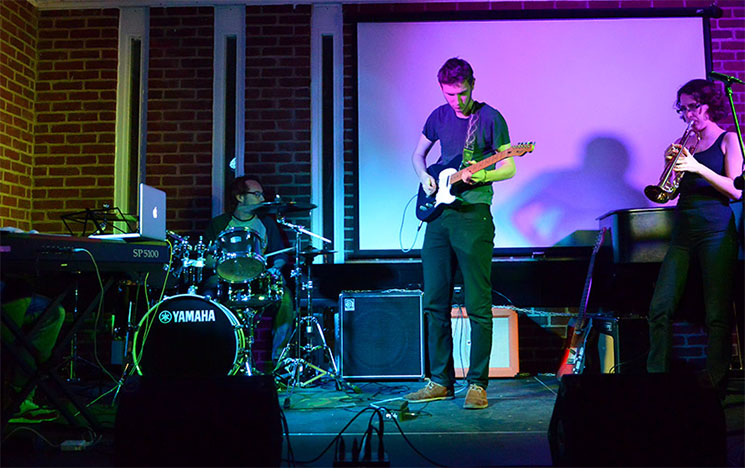Music
Whether you're studying abroad at Sussex for a semester or year, you can browse our music modules below, and if you're unsure what to study, follow our top tips for how to choose a module.

Browse our modules
You can see our full list of music modules below.
Year 1
Year 2
Year 3
Not sure how to choose?
Follow our top tips for choosing your modules. You can also find out about our teaching structure, assessment process and how your credits transfer back to your home institution.
Find out more.
Which school will I study in?
You'll study in the Department of Music, which is part of the School of Media, Arts and Humanities.
Our academics are composers, performers and musicologists, celebrated for their work on contemporary music, film scores, popular music, opera and the live stage, and sound installations.
Our students are also producing high-quality productions.
Find out more.
Our music research
Our researchers are focusing on areas including critical musicology, acoustic and digital composition and opera and musical theatre.
Our research influences the way we teach, and you learn from academics at the forefront of their fields.
Find out more.
Contact us
If you are studying at Sussex for a semester or year and have questions, email sussexabroad@sussex.ac.uk.
*Access to facilities dependent on modules studied **(Our campus is nine minutes by train from Brighton & Hove) survey by accommodation providers Student Living by Sodexo. Rankings based on full undergraduate degree at Sussex.